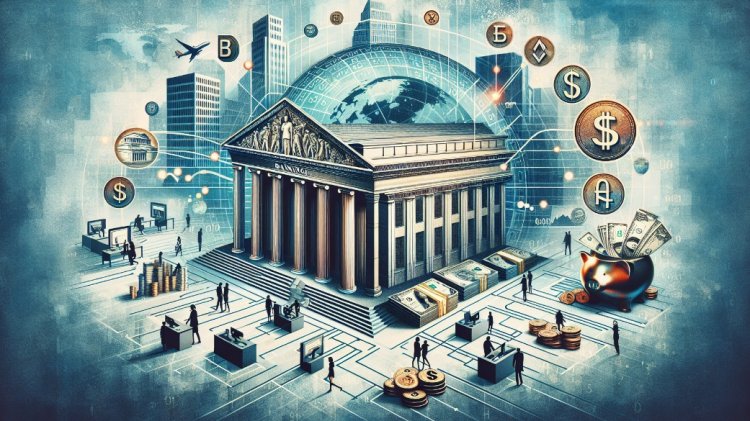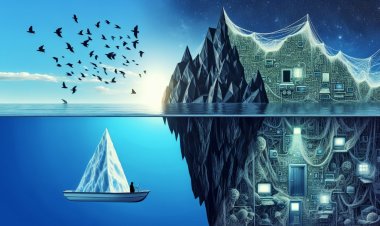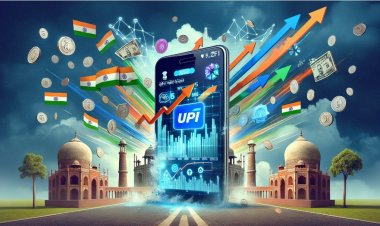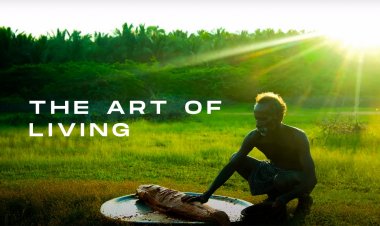The Secrets of the Banking System
Unravel the mysteries of the banking system! Delve into its inner workings, from fractional reserve banking and hidden fees to the Federal Reserve's role and the future of money.

Introduction
Andrew Jackson, a person from the past, once said something important. He believed that if regular people like us knew how unfair our money and banking system was, we would be very upset and might even start a big change in our society. These words were said a long time ago before the Federal Reserve was created. But they are still true today. The way banks work has changed a lot, and it's making rich people even richer. Sadly, many folks don't really understand how things work, like how money is made and how the Federal Reserve does its job. So, what happens is that only a few people get the good stuff from this system, while the rest don't get as much and are put in a tough spot. In this blog, we will share some secrets about banks that they don't want you to know. We will talk about what they are keeping hidden and how you can make money from the banking system.
All money is debt.
Have you ever thought about where the money comes from? Why does a special piece of paper with pictures and numbers on it have worth? You see, when it comes to money, something important to know is that it is actually created when people owe each other. It's like when you borrow something from someone and promise to give it back later. That's how money is made. Many people think that the government makes money, but that's not true. Instead, it takes money from the Federal Reserve, just like regular people and businesses do when they need to borrow money.
The Federal Reserve makes money by printing it on special paper with ink. Then, the government uses this money to pay for different things like schools, hospitals, and bridges. When the government uses this money, it goes into the economy and moves around through banks until it reaches regular people. But wait, there's more to how money is made than just this small part.
The Creation of Money
Almost all money, about 95%, is not physical cash but rather numbers stored in computers made by banks. When you put money in a bank, it doesn't just stay in a safe. Instead, the bank takes some of the money you put in and gives it to someone else who needs it. They charge that person more money in return, and that's how the bank earns money.
But they have to keep a little bit of your money in case you want to take it out later. This means that even though your bank account says you still have money, most of it has actually been given to other people as loans. This keeps happening when the money goes from one bank to another, and it makes more money as it goes. So basically, most of the money we have doesn't really exist in physical form, like coins or paper. Instead, it's just numbers that we see on a computer screen.
The Strangest Part of the System
This system is very confusing because the money that was printed was actually borrowed and given to the banks and the government. This means that when someone owes money, they may never be able to fully pay it back because the amount they owe is always more than the actual money available. To help you understand, let's pretend you asked the Federal Reserve for $10, and they agreed to lend it to you.
But they also said that you have to pay them an extra 10% of that $10 as interest. You would have to give back $11, but there was only $10 to begin with. This shows a problem with how we use money. Even though we have faith in this system and use paper money, there is nothing physical that guarantees its value. So, it's a good idea to put your money into things like stocks, gold, or houses.
Who owns the Federal Reserve?
To know who owns the Federal Reserve, we have to look at its past. In the olden days, a long time ago, America had a lot of money problems. There was a big fight called the Civil War that almost ruined the country. It became clear that a central bank was needed to handle money problems, like what happened in many European countries. A bunch of rich people, like JP Morgan, got together on an island called Jekyll in Georgia in 1910. They wanted to figure out how this thing called the Federal Reserve would work. Finally, in the year 1913, the Federal Reserve was created. It is made up of 12 banks that are located in different parts of the country.
Every bank has to keep some of its money in a special bank called the Regional Reserve Bank. In exchange for doing this, they get to own a part of that bank. The Federal Reserve is essentially a bank that the other banks in our nation own. It's crucial to understand that all of the major banks in the US are public institutions, even though this may seem unfair. If you buy their stock, it means you become a part-owner of these banks. And when you own these banks, you also become a part-owner of the Federal Reserve, but in a roundabout way.
Your bank is not your financial planner.
It's really important to know that banks are companies that make money. Their main aim is to make as much money as possible for the people who own the company, not to do what is best for you. Sometimes, what you want might be the same as what the bank wants. But it's important to be careful and not trust them too much. People who work at banks, like the people who help you with your money, are taught how to persuade you to buy the things they offer.
Just 'cause someone is nice and dresses fancy doesn't mean they truly care about you. Make sure to spend some time thinking on your own and really think about any money choices you make. Look at the prices and things that different banks offer. Sometimes, a bank might seem nice, but it could end up making you lose a lot of money in the future. So, it's important to compare and choose wisely.
The Wealth Disparity in Banking
You know how some people have a lot of money and some people don't have as much? Well, when it comes to banks, the people with more money don't have to pay as much as the people with less money. It's not very fair, but that's just how the banking system works. Banks are supposed to help people who have extra money by lending it to people who need it. But over time, this idea has changed in a way that is not fair. If you only have enough money to cover your expenses until your next paycheck, banks may consider you to be less important or valuable.
They can earn a little bit of money from the things you do with your money, like giving you a small loan or a credit card. But if you have a lot of money, banks will give you better deals. They want to keep your valuable things safe and make you their most important customer. You can see this difference when looking at the interest rates for home loans given to really wealthy people. These rates are much lower than the rates that most people get.
A bank is a place to park your money, not to invest.
A lot of people get mad at banks because they don't give them much money back when they put their money in the bank. When you put your money in fixed deposits, you usually don't get much more than a 1% increase in the amount you have. But it's important to understand that banks are not things you use to make investments. Instead, they are places where you can keep and take care of your money. In the olden days, giving money to someone and getting more money back as a fee was a way to make a lot of money. Sorry to say, but money nowadays doesn't have any real worth on its own. This makes it difficult to make a lot of money from regular bank accounts.
If you want to keep your money in a bank, you can think about buying bank stocks. For instance, Goldman Sachs gives out a 2.1% dividend rate, which means they pay you some extra money based on how much you have invested with them. This rate is actually higher than the interest rate they give you if you put your money in a fixed deposit with them. When you buy stock from a bank, it means you become a part-owner of the bank. This can be good for you because if the value of the stock goes up, you can make more money.
Conclusion
The way banks work can be hard to understand, and sometimes people don't know much about how they actually work. It's really important to know about how money is made, who owns the Federal Reserve, and why banks do what they do. This will help you understand how things work in the world of money. Sometimes, banks might not do what's best for you. But it's really important to learn about things, compare prices, and make smart choices. If you do this, you can keep your money safe and maybe even make more money from the system.
Listen up, my friend! Money is like a kind of debt. But don't worry; it's not a bad thing. When you have money, it means someone owes you something. Now, if you want to make your money grow and be safe, you should think about investing in things you can touch and feel, like real estate or precious metals. These things can give you more security and help your money grow over time. You should manage your money well and take advantage of the chances you have.



 admin
admin 










